I was talking to a friend the other day and I completely forgot the word for a photo camera. Being bilingual, this is not uncommon for me. Every once in a while I experience a brain fart where I just completely blank on a word in one of the languages but not the other. Some people are surprised that this happens, but it is basically the neural consequence of linguistic fluency. You no longer need to maintain a one-to-one parity between words in both languages and so it unravels. The benefit of this loss of parity is that you can now internalize complex idioms without the need to translate and rationalize them in the other language. The drawback is that sometimes your brain will decide to think in a mixed language word salad and you get stuck grasping for a word in a middle of the sentence.
In this case my brain decided that “My cousin bought a really fancy aparat fotograficzny to take pictures of the baby…” was a perfectly valid English sentence and it wasn’t until my mouth tried to make the appropriate sounds that I realized I suddenly switched language contexts. I couldn’t find “camera” so I went the descriptive route and said “the, um… picture taking… thing”. My friend tried to guess what I had in mind and said: “Phone?”
It’s funny, but seeing how it’s almost 2015, yes phone is actually a pretty good guess. After all, the only people who bring dedicated photo camera devices to events are professional photographers and elderly grandparents. So it stands to reason that my friend, who happened to be slightly younger than me associated taking pictures with the exact device that is used for that purpose most often these days.
I remember that when I was an undergrad, we talked about technological convergence as a fairly abstract concept. It was something we presumed would happen, though we were not exactly sure how. We also thought that Neo’s flip phone in The Matrix matrix was like the coolest thing ever, and we would have never considered putting a computer onto it because that’s not what phones were for. Little did we know that this would be the device that technology would converge on.
Think about it, you phone has now replaced and superseded most of the electronic and non-electronic devices we have used in the 80’s and 90’s. Let me give you a few examples:
| The 90’s | Year 2014 | |
|---|---|---|
| Device you use to take pictures? |  Camera |
 Phone |
| Device you use to check the time? |  Watch |
 Phone |
| Device you use to take videos? |  Camcorder |
 Phone |
| Device you use to listen to music on the go? |  Walkman |
 Phone |
| Device you use to blast loud music on the beach or at a party? |  Boombox |
 Phone |
| Portable gaming device? | 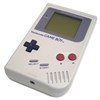 Gameboy |
 Phone |
| Device you use to record your voice? |  Dictaphone |
 Phone |
| Device you use to cheat in math class? | 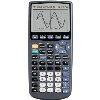 TI-83 Calculator |
 Phone |
| Device for receiving text messages? |  Pager |
 Phone |
| Device you use to check your email? |  Computer |
 Phone |
| Device you use to watch movies? |  VHS Player |
 Phone |
| Device you use to connect to the internet? |  56k Modem |
 Phone |
| Device you use to organize addresses and phone numbers? | 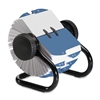 Rolodex |
 Phone |
| What do you use to organize your schedule? |  Pocket Planner |
 Phone |
| What do you use to write quick notes and reminders? |  Notepad |
 Phone |
| Device you use to keep track how many steps you take in a day? | 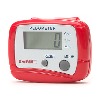 Pedometer |
 Phone |
| What do you use to find driving directions? |  GPS Unit |
 Phone |
| What do you read on the bus / plane? | 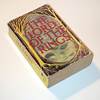 Paperback Novel |
 Phone |
| Place where you keep all the store loyalty cards? |  Key Chain |
 Phone |
| What do you use to pay for your coffee at Starbucks? |  Cash |
 Phone |
| What do you use to make long distance calls? |  Phone |
 Skype |
Ok, that last item is a bit of a joke, but not really. I hardly ever use my phone to make actual phone calls. The other day I actually had to do a search for the phone app because I stuffed it in some folder to make space on the first few pages for the apps I actually use all the time.
Here is another interesting thought: a lot of people today are very skeptical of wearable technology. Devices such as smart watches or Google Glass type eye-wear may seem silly and gimmicky right now. But in 1999 this was exactly how I felt about smart phones – all I wanted back then was a cool, thin, switchblade style flip phone like Neo had. I could not have imagined that mere 15 years later my phone will be several times more powerful computing device than my Gaming PC was back then. But here we are.
If you told me one of my students will bang out a the assigned essay an hour before the deadline on their phone while sitting in the quad, I’d probably be skeptical. Bu that happened, and mad props to that student because there is no way I could ever type that fast on a touch-screen. I guess what I’m saying is – right now our technology is converging on the phone. Younger generations are fully embracing the mobile lifestyle, and many use their phones as their main computing platforms(which does explain the surge of popularity for the large screen devices). But it is silly to think that phones is where it will end. This is just a stage in a much larger process. At the moment we don’t know where it will go, but we do know that screen size is a limiting factor. Decoupling computing from a touch screen and expanding the display into your entire field of vision does offer many interesting new possibilities. Especially considering that we are already getting pretty good at the augmented reality thing.
So wrist mounted computation brick, coupled with Bluetooth connected eye-wear as a primary display is not necessarily a far fetched idea…
Interesting table of convergences. I would like to point out that for some things the phone is a capable, but inferior device. I’d much rather watch movies on my larger TV screen or even a laptop screen than on a tiny phone, and I don’t think a phone’s speakers quite do duty as a boombox (unless you’re in a fairly small, closed space). But I agree with the broader point.
Once smart glasses become more common, I would love to see better input devices. The swipe keyboard on my phone is nice, but some kind of glove with positional sensors that can accurately track finger movements? I’d love to be sitting outside in the sun with my smart glasses and gloves getting serious work done.
I’d also like to be able to more easily write software that easily connects my phone and the “cloud” services I use on a regular basis, but that’s a matter for another post.
@ Shrutarshi Basu:
Yes, I agree. But the fact is, I do know people who watch Netflix almost elusively on their tablet sized phone so I figured it was a valid use case. And while phone does not make for a great boombox on its own, there are very inexpensive speaker sets you can buy that will provide just the right amplification. Nearly all barbecues I went to this summer had “phone driven” music playing in the background. :)
As for smart gloves – I don’t know if I like the idea. Conceptually it would work, but they would be annoying and cumbersome. Rings or bands could be a viable replacement that is less ostentatious and could more easily be turned into a status symbol / fashion accessory. Alternatively your smart glasses could have downward pointing camera that would track movements of your hands…
Long distance calls can be made using an iPhone via Facetime calls. I txted somebody in Australia using iMessage. Cool stuff. Used to have to pay tons of money to do all this…